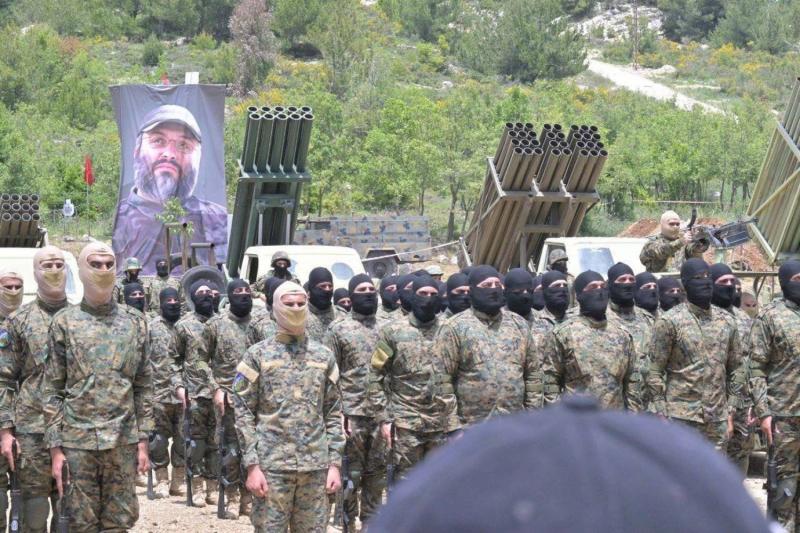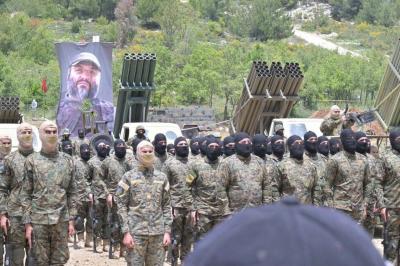"Hezbollah" announced its readiness to respond to any escalation "in line with any Israeli reaction" that follows its response to the assassination of its military leader, Fouad Shukr. The party believes that discussions about "a settlement or initiative leading to a permanent ceasefire in Gaza and the West Bank" will occur after its response, not before it. This comes amid ongoing escalation, where Israel is expanding the geographical scope of its targeting within Lebanese territory, while the party is increasing the type of munitions used to strike Israeli targets.
In parallel with the escalating threats to retaliate for Shukr's assassination in the southern suburbs of Beirut last week and Iran's threats of retaliation for the assassination of Hamas leader Ismail Haniyeh in Tehran, U.S. Central Command Chief Michael Kurilla visited Tel Aviv for the second time in a week, as announced by the Israeli army on Friday. Kurilla assessed the situation with Israeli army Chief of Staff Herzi Halevi and Air Force Commander Tomer Bar.
In a notable field development, Israeli drones pursued a Hamas leader named Samer Al-Haj, hitting his car with two missiles in the city of Sidon, the capital of the south. Al-Haj was killed while a companion in the vehicle was injured and taken to the hospital. Palestinian sources in Sidon stated that Al-Haj was attending a meeting inside the Ain el-Hilweh Palestinian refugee camp and was targeted as he exited the camp.
"Hezbollah" intends to respond to Shukr's assassination, as confirmed by three of its leaders on Friday. Member of its parliamentary bloc (Loyalty to the Resistance) MP Hassan Azeddine stated that "the response to the Zionist enemy is inevitable, whether from the Islamic Resistance in Lebanon, the Islamic Republic, Yemen, or Iraq," pointing out that "the response is to the enemy's transgressions and attempts to breach red lines."
In reference to diplomatic efforts being made to prevent escalation and avoid dragging the region into a major war, Azeddine said: "All those trying to dissuade the Resistance and the Islamic Republic from their response should come after the response; then discussions on any settlement or initiative leading to a permanent ceasefire in Gaza and the West Bank can take place."
For his part, former minister Mohammed Fneish affirmed: "We in (Hezbollah) live the reality, monitor it, and bear our responsibility. We are not afraid of the enemy’s threats, and we possess means for response and deterrence that render the enemy unable to exceed the boundaries of engagement for 10 months. Should it exceed, the Resistance will respond and return it to the established rules of engagement." He added: "We are not afraid of escalation, and if there is escalation, we will deal with it in accordance with any enemy reaction, which will not deter us from continuing our decision to confront aggression and respond."
Amidst these threats and preparations, Israel continues to expand the geographical scope of its strikes within Lebanese territory, adding new towns to its target list. The latest was an attack on a building in the Hanawiya area east of Tyre early Friday, which did not result in any human casualties. Israeli drones also pursued two members of "Hezbollah" in Naqoura, resulting in their deaths.
The public health emergency operations center affiliated with the Ministry of Health announced in a statement on Friday that an attack by an Israeli drone on the southern town of Naqoura "resulted in the martyrdom of two individuals." The Israeli army confirmed that warplanes attacked a command center of "Hezbollah" in the Hanawiya area and infrastructure in the Aita al-Shab region in southern Lebanon. The planes also targeted a launch pad used by "Hezbollah" in Aita al-Shab, from which rocket shells were fired on Thursday towards the Bernet area in Upper Galilee.
In response to the Israeli escalation, media close to "Hezbollah" reported that "very heavy missiles" were used in targeting Israeli sites, including a military base in Kiryat Shmona. "Hezbollah" announced that its elements targeted the command center of the 769 Israeli Brigade in the Kiryat Shmona barracks with "Katyusha" rockets as a response to Israeli attacks on the southern town of Hanawiya, and "launched an aerial attack with a swarm of kamikaze drones on the command center of the coastal battalion belonging to the newly formed western brigade in Lima," targeting "the positions of its officers and soldiers with precision and causing confirmed injuries."
Additionally, it announced in other statements targeting buildings used by Israeli soldiers in Kiryat Shmona and bombarding the command center of the 769 Brigade in Kiryat Shmona with heavy "Falak" rockets. Israeli forces opened fire with heavy machine guns towards the mountains of "Al-Labouneh" and "Al-Alam" and the outskirts of Naqoura in southern Lebanon. The Israeli artillery shelled areas before the southern town of Khiyam, according to the National News Agency of Lebanon.




